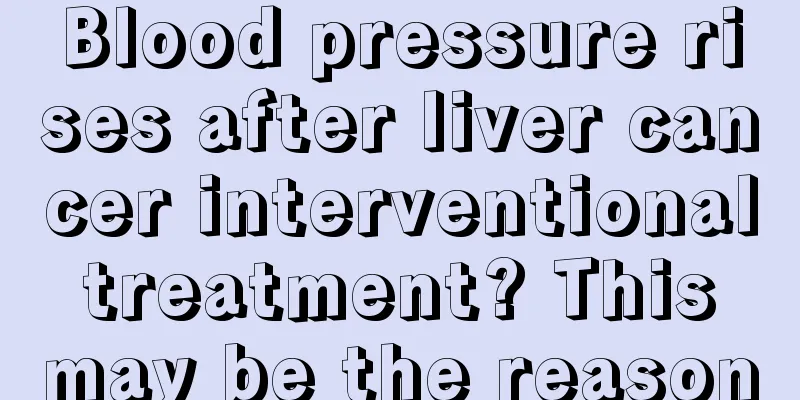What to do if your child is anxious before the college entrance examination

|
The college entrance examination is the most important event in a child’s academic career. It determines a child’s future. It is normal for children to feel anxious after studying hard for ten years waiting for this exam. This kind of anxiety needs to be adjusted in time before the exam so that you can perform normally or even exceptionally well in the exam. How to solve this situation troubles parents and teachers of children. This article provides several methods to help children get rid of pre-exam anxiety. Let’s take a look. 1. Hook-hand hook-pull method Use this method to relieve tension during your normal review. The method is to bend your hands into a hook shape and pull them together, tighten and relax, tighten and relax again, repeat this several times, and your emotions will gradually relax. 2. Take advantage of every opportunity That is, take advantage of the gaps between study to relax and relieve the fatigue of study. The method is: seize every bit of free time you have, don't think about anything, just remember to contract your abdomen, twist your body, yawn, do it several times in a row, you will achieve the effect of self-relaxation. 3. Breathing relaxation method Correctly using deep breathing is a simple and easy way to regulate your emotions. There are two key points to pay attention to when taking deep breaths: one is to inhale slowly and rhythmically, and the other is to exhale slowly and rhythmically. Second, pause for 1 to 2 seconds after inhaling before exhaling. As you exhale, immediately feel your muscles relax. In the future, whenever you find yourself influenced by others and your mind is blank, you can use this method to regulate yourself. (1) Explanatory method of psychotherapy: Since most patients with anxiety disorders have anticipatory anxiety, they have an anticipated fear of future anxiety attacks. If patients can actively cooperate with psychologists and patiently listen to the doctor's explanation of the nature of the disease, it will help reduce the psychological burden and prevent the occurrence of anxiety disorders. (2) Relaxation therapy as a psychotherapy method: Relaxation therapy is a method that teaches patients how to relax their muscles and emotions. Patients can eliminate distracting thoughts by learning and mastering methods of regulating breathing and relaxing muscles throughout the body. The patient should first focus on one part of the body (such as the left hand) and try to relax the muscles in that part until a warm feeling is generated. Then shift your attention to another part of your body (such as your right hand). Repeated training in this way can calm your mood, regularize your heartbeat, and make your breathing even, which is very effective for people who suffer from anxiety attacks. (3) Shock method of psychotherapy: suddenly placing the patient in a real environment that stimulates anxiety to change pathological behavior. This treatment lasts 30-60 minutes each time, and the number of treatments is generally 1-4 times. (4) Systematic desensitization as a psychotherapy method: When the patient is in a state of general relaxation, a stimulus that can cause mild anxiety is repeatedly presented to the patient. When the stimulus no longer causes anxiety in the patient, the intensity of the stimulus is increased and the same method is repeated until the patient's anxiety disappears completely. (5) Hypnosis as a psychotherapy method: Hypnosis is suitable for generalized anxiety disorder (an anxiety disorder characterized by frequent, persistent tension and uneasiness without an obvious object or fixed content, or excessive worry or distress about certain problems in real life). Hypnotists use highly suggestible hypnosis techniques to improve patients' anxiety and sleep. 1. Anxiety is an emotional state. The patient's basic inner experience is fear, such as being on tenterhooks, feeling uneasy, or even extremely frightened or terrified. 2. This emotion is unpleasant and painful, and may feel like death is imminent or that one is about to collapse and faint. 3. This emotion is directed toward the future, implying some kind of threat or danger that is coming or about to happen; 4. There is no actual threat or danger, or, measured by reasonable standards, the anxiety-provoking event is disproportionate to the severity of the anxiety; 5. Simultaneously with the experience of anxiety, there are physical discomfort, psychomotor restlessness and vegetative dysfunction. Anxiety symptoms include three aspects: 1. Painful emotional experiences that are disproportionate to the situation. The typical form is anxiety and fear without a definite objective object and specific and fixed conceptual content. It is often called free-floating anxiety or nameless anxiety in the literature; 2. Psychomotor restlessness. Fidgeting, pacing, running and shouting, or involuntary tremors or shaking; 3. Autonomic dysfunction accompanied by physical discomfort. Such as sweating, dry mouth, stuffy throat, chest tightness and shortness of breath, difficulty breathing, piloerection, palpitations, redness and paleness of the face, nausea and vomiting, urgency and frequency of urination, dizziness, general weakness, especially in the legs, etc. The emotional experience of anxiety alone without any manifestation of motor and autonomic nervous system function cannot reasonably be regarded as a pathological symptom. On the contrary, without the inner experience of uneasiness and fear, purely physical manifestations cannot be considered anxiety. 1. Positive self-suggestion The great French writer Alexandre Dumas once said: "Life is a rosary composed of countless troubles, and optimistic people always recite this rosary with a smile." When you are anxious, give yourself strong self-suggestions, such as "I can do it", "I will definitely succeed", "I am optimistic about myself", etc. Positive self-suggestion can increase self-confidence and overcome anxiety. 2. Exercise moderately Studies have shown that exercise can eliminate some of the chemicals that cause anxiety, relax the mind and make you feel happy. When you feel anxious, just don't think about anything and go for a run, play ball or swim, etc. This will not only exercise your body, but also effectively relieve anxiety, so that you have more energy to do the next thing. 3. Do what you are most interested in When people are doing something that interests them, they will devote themselves wholeheartedly and enter a state where they forget about themselves and the world. Therefore, when you are facing anxiety, put down the work at hand and do something you are interested in, such as singing, listening to music, watching TV, playing basketball, etc. When you finish doing these things, your worries and anxiety will be gone without a trace. 4. Emotional catharsis Emotional catharsis is an important means to relieve stress and maintain psychological balance. You can tell your family or friends about your tension and anxiety to help yourself adjust; or find a suitable place to cry or laugh out loud to vent your inner depression. 5. Music Music can relax people and bring about positive changes in their physiological and psychological rhythms. When something makes you feel uneasy and irritable, you might as well calm down and listen to music. You will feel that the music is like a breeze blowing through your soul, making you feel extremely comfortable and cozy, and your anxiety will disappear. |
<<: How to overcome anxiety before the high school entrance examination
>>: The efficacy and function of motherwort brown sugar
Recommend
Analysis of common treatment methods for cardiac cancer
With the continuous advancement of medical techno...
Can abdominal CT scan detect colorectal cancer and stomach cancer?
Can abdominal CT scan detect colon cancer and sto...
What are the important things that patients with gastric cancer should pay attention to in their daily lives?
What are the important things that patients with ...
What supplements should lung cancer patients take?
Lung cancer is a common malignant tumor of the re...
What should I do if I always feel dry eyes
If we use our eyes improperly and use computers o...
Can I drink alcohol if I have balanitis
Balanitis is a disease with a relatively high inc...
What should I do if I vomit while taking folic acid during pregnancy
Women will have many reactions in the early stage...
Nursing methods for advanced brain cancer
No one wants to be sick, but when the disease str...
How to classify tinnitus and identify symptoms and treat them
Tinnitus refers to a small buzzing sound in the e...
Taking a bath for half an hour consumes calories
In fact, many people want to lose weight, but the...
My lower abdomen and urethra hurt
Women’s physical health is very important to them...
What to do if your stomach gets bloated after drinking milk
Nowadays, many parents pay much more attention to...
Is chemotherapy effective for advanced liver cancer? It has a certain effect
Late stage liver cancer is a very serious stage o...
What are the instructions for using the oxygen bag
Usually, if you have cardiovascular disease, you ...
What are the harmful manifestations of hamartoma
Now that living conditions are better, we often e...









